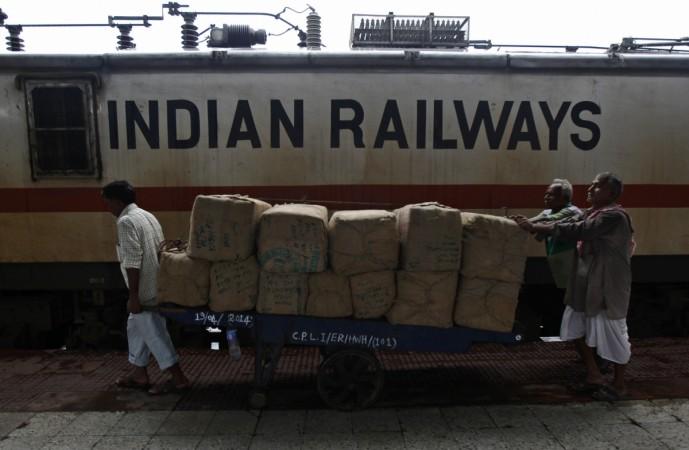
After facing intense criticism since announcing the introduction of flexi pricing, or surge-pricing, in three premium trains -- Rajdhani, Shatabdi and Duronto -- Suresh Prabhu-led Indian Railways has come up with an interesting way to counter back.
The surge hike suggests that while 10 percent of the seats will be sold at the normal fare in the beginning, it will go on increasing by 10 percent with every 10 percent of berths sold with the ceiling limit at a maximum of 50 percent, depending upon the demand. The surge fares will be capped at 1.5 times the base fare. After making the announcement, Indian Railways faced intense backlash with opposition parties such as the CPI-M and the Congress, which strongly opposed the move and called it "draconian."
In a bid to assert that the new pricing system does not affect the common man, Indian Railways has tweeted out a chart that compares the train travel cost (non-premium) between two cities to the cost of brooms and apples, besides claiming that the proposal is set to work on an experimental basis.
The comparison has been made for train travel of less than 300 kilometres and the Railways has also compared the relative fares of general class trains, sleeper class trains and buses. The Railways has also said that such a system is internationally followed.
According to the Railways, it takes Rs. 45 to travel between Lucknow and Kanpur (73 km at Rs. 0.62 per km) from a general class train – the same as the cost of 1kg sugar!
Similarly, New Delhi to Agra train fare (194 km at Rs 0.44 per km) for the general class is Rs. 85, and you can buy 1 kg of apples for the same amount!
The "costliest" item that the Railways has spoken of is a broom, comparing the journey cost of Rs 100 for Lucknow to Jhansi to it (293 km at Rs. 0.34 per km)!
Seeking to dispel myths surrounding the system and its comparison with surge pricing that taxi aggregators follow, Railways said: "The methodology of price rise in our case is transparent and completely predictable. Also the price rise is limited by an upper ceiling of 50% of existing fare unlike the surge pricing of cab aggregators."
Indian Railways has also come out on Twitter to defend its flexi-pricing policy for the premium trains, through infographics and charts.
Reports suggest that the surge pricing for 131 premium trains launched by Indian Railways will fetch it an additional Rs. 500 crore from the passenger segment in FY17.

















